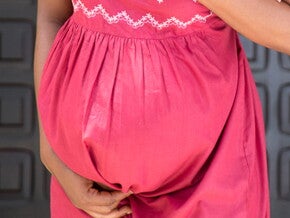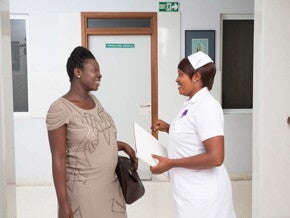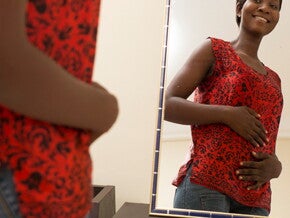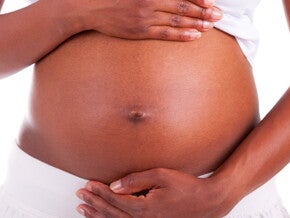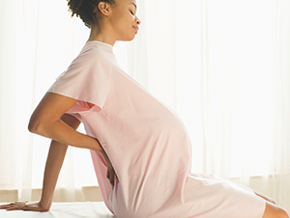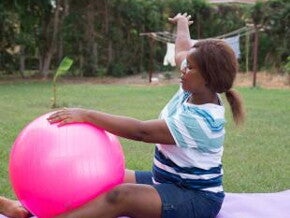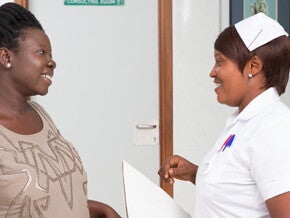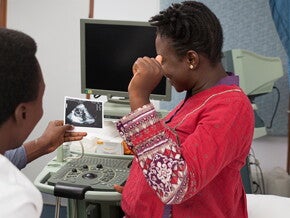
Physical & Hormonal Changes During Pregnancy
Being pregnant is an exciting experience, not only are you anticipating the day you finally hold your baby in your arms, but your body is also going through amazing changes.
Issues caused by physical changes during pregnancy
Backache
This is a common complaint due to changes in posture and relaxation of ligaments. Try to use your back properly, keeping it straight when you bend down by bending your knees.
Support your back when you are sitting down with a cushion or a rolled up towel in the hollow of your back. Try placing a hot water bottle over the site of the pain, as the heat can often help.
Remember to consult your healthcare professional before taking any medications.
Bathing problems
As your pregnancy progresses and you get bigger, you may find you have problems getting comfortable in the bath. Unfortunately, this is usually at a time when a nice warm bath is a very appealing way to relax.
For safety reasons, it is best to take a bath when there is someone else in the house. That way, you’re not on your own if you need help getting in or out of the bath.
Fainting
It is more common for you to faint or feel faint during pregnancy. It is important that you do not stand still for long periods of time or have a sudden change of position, as this may make you feel faint.
Later in pregnancy, it can be important that you not lie flat on your back. This could result in the weight of the baby pushing on the blood vessels leading to your heart and can prevent enough oxygen getting to your brain. Staying in that position for too long may cause you to feel faint or actually faint.
Always lie either on your side or, if you can only get comfortable on your back, make sure you are propped up with pillows under your lower back and hips.
Heartburn
Heartburn usually happens in the latter stages of pregnancy and feels like a burning sensation in the stomach that often rises to the throat.
To avoid it, eat smaller, lower-fat meals more frequently and drink fluids between rather than with meals. Try a milky drink before bedtime as this can often help. Some non-prescription products are suitable for use during pregnancy. Here are a few other pointers:
Limit spicy as well as acidic foods such as tomatoes, citrus fruits and their juices.
- Avoid fatty foods.
- Avoid coffee, tea, cola and chocolate.
- Wait 2 hours after meals before lying down.
- Choose foods that are peppermint-free (including chewing gum, candies, and herbal teas). Other flavours of these foods are fine (e.g. cinnamon chewing gum, butterscotch candies).
If heartburn becomes severe, consult your healthcare professional, as this sometimes indicates a more serious underlying problem.
Leg cramps
Leg cramps tend to occur in the last few weeks of pregnancy in the backs of your legs and calves. Massaging your legs will help relieve the cramps. Flexing your feet upwards will also stretch the calf muscles.
Nosebleeds
As your pregnancy progresses, you will have extra blood circulating around your body. With the additional pressure this puts on your vessels, you might experience a nosebleed.
Nosebleeds can be messy but quite common in pregnant women. If the bleeding is heavy, tip your head forward and pinch your nose, closing the nostrils completely until the bleeding has stopped. If the bleeding persists, consult your healthcare professional.
Palpitations
During pregnancy, the volume of blood that is circulating around your body is increased, which makes the heart work harder.
As the pregnancy advances, extra pressure is put on your heart. This can lead to you sometimes feeling as though your heart has irregular rhythm, which is the most common cause of palpitation. This is normal if it occurs occasionally. If it persists or happens frequently, you should contact your healthcare professional.
Constipation
Constipation is a common problem, especially in the last trimester of pregnancy. Fibre, fluids and exercise are essential to managing it.
- Drink lots of water.
- Eat fibre-rich foods (fresh fruits and vegetables, wholegrain breads and cereals, legumes, dried peas, beans, lentils, chickpeas, etc.).
- For breakfast try prune juice or a small bowl of fibre-rich bran cereal.
- Regular physical activity (if your healthcare professional gives it the OK) can help by increasing blood flow to the abdominal area.
Haemorrhoids
Haemorrhoids are varicose veins that occur in the anus and can cause itching, soreness and possibly bleeding.
Haemorrhoids can be aggravated by constipation because of the extra pressure on your bowels. Avoiding constipation will help prevent haemorrhoids.
Stretch marks
Stretch marks can appear anywhere on the body where the skin has stretched, but they are most common on the breasts, abdomen and tops of the legs.
During pregnancy, stretch marks can appear. But when the baby is born and the tension is removed, the marks fade.
There are some creams available that are designed to help prevent stretch marks from developing. But using creams cannot guarantee that you won't get stretch marks.
If you choose to use a cream, apply it daily as soon as you know you are pregnant and continue until 2 months after your baby is born.
Stuffy nose (also see nosebleeds)
An increased volume of blood within your body during pregnancy can cause the vessels in your nose to swell and give you a stuffy nose.
Try to sleep with your head raised slightly on a pillow if a stuffy nose is a problem for you, but do not use decongestants or nasal sprays without checking with your healthcare professional first.
Also be careful to not blow your nose too hard as you will be more likely to rupture the vessels and have a nosebleed.
Swelling of ankles, feet, hands or face (oedema)
The added weight of the baby in the second half of pregnancy increases the pressure in your legs and ankles. At this time, you also have extra fluid in your body that tends to collect in your lower limbs.
The following tips may help:
- Try to avoid standing for long periods of time. If your feet do swell, try to sit with them raised as much as possible.
- Try to do some gentle foot exercises as often as possible. Swelling can sometimes be associated with a rise in blood pressure, so if the swelling becomes severe or if your hands or face swell, contact your healthcare professional at once.
- Surprisingly for many women, drinking lots of water actually helps combat bloating and swelling. Milk, soup, and juice are some other healthy sources of fluids that can help too.
Varicose veins
These are veins that become swollen. During pregnancy, they are most common in the legs.
Occasionally, some women get varicose veins around the vaginal opening (vulva), but these are usually quite rare.
You can help prevent varicose veins in the legs by:
- Avoiding standing for long periods of time.
- Not sitting with your legs crossed.
- Sitting with your legs up as often as possible. To get the maximum benefit, sit with your legs higher than your hips.
- Wearing support tights. If you do have varicose veins, these tights should be put on before you get out of bed to gain the maximum comfort from them.
- Doing foot exercises regularly.
Issues caused by hormonal changes during pregnancy
Headaches
Headaches can be fairly common in pregnancy and may be due to the hormonal changes that are taking place in your body. Your nose and sinuses are also likely to be more sensitive and can become swollen, causing a headache.
Fresh air may help to clear your head. If it is practical, lie down and rest, as tiredness could be the cause of the headache. Headaches can sometimes be a sign of high blood pressure, so if the headache persists or becomes severe, contact your healthcare professional.
Leaking breasts
From about 16 weeks of pregnancy, your breasts produce a thin, milky, yellow fluid called colostrum.
You may find that your breasts leak a little during pregnancy and this may stain your clothes. So, you may find it useful to wear breast pads.
Skin changes
Due to hormonal changes during pregnancy, you may find changes in your skin condition and colouring.
Some women find that problem skin clears and appears healthier and moles become darker.
The colouring of the skin is determined by pigmentation, which is affected by the changes to your hormone levels. This can mean that some women become darker when pregnant. Some women even develop a mask-like, patchy colouring on the face. This is known as chloasma.
Many women also notice that they develop a dark line running up the abdomen from the pubic hair up to, and sometimes beyond, the belly button as pregnancy progresses. This is normal, and is called the linea negra. The linea negra tends to be more prominent in women who have dark colouring.
These pigmentations will gradually fade when the baby is born, but you may notice that your nipples will always be a little darker than they were before you became pregnant.
Sleeplessness (insomnia)
When you first learn the big news, you may experience so many feelings and emotions that you find it difficult to sleep. Having to get up frequently to urinate during the night doesn't help either!
Late in pregnancy, it is likely that you will have difficulty getting comfortable in bed. Putting extra pillows behind your back, between your legs and under your belly may help.
It is also normal for you to have dreams about the baby and the birth. Remember that these are just dreams. But if you need reassurance, talk to your healthcare professional. You may also find it helpful to discuss dreams with your partner or family.


